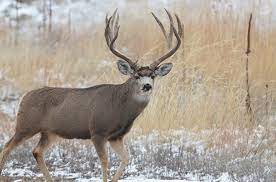
We are lucky to live in a community that is abundant with wildlife. Deer are a constant fixture in the area as well as coyotes, turkeys, foxes, snakes, the occasional bear or mountain lion and many other Colorado animals. With the local creatures ever present there can be ups and downs to coexisting. We encourage all residents to educate themselves about the local wildlife so that we can exist in harmony.
Colorado Parks and Wildlife has a wealth of information to help residents stay informed and aware.
SICK OR INJURED WILDLIFE
For assistance with sick or injured wildlife please contact
Colorado Parks and Wildlife Division
303-291-7227 or visit //cpw.state.co.us/
REPORTING WILDLIFE CONCERNS
Concerned citizens are welcome to call the CPW Denver Headquarters at 303-297-1192, or any CPW Office, If they suspect an animal is injured or abandoned, or to report incidents of feeding or other illegal wildlife activity.
If you wish to remain anonymous, contact operation game thief at 877-265-6648. Rewards may be offered if the information leads to a citation.
WHO DO I CALL TO REMOVE A DEAD ANIMAL?
Dead animals that are on public streets are picked up by a dead animal removal service administered by the Douglas County Sheriff Office. To request a dead animal to be picked up call DCSO Dispatch at 303-660-7500.
Dead animals on Highways or Interstates are the responsibility of the Colorado Department of Transportation. For these services call 303- 757-9514.
Douglas County Animal Services does not pick up dead animals, unless they are a pet wearing identification.
FEEDING WILDLIFE
CPW also wants to let citizens know that feeding corn and grain to some big game animals can be toxic and cause their death. Recently, four big game animals died on the Front Range as a result of being fed.
Deer, elk, bighorn sheep and other ungulates are all ruminants, animals with a complex digestive system composed of a four chambered stomach. These animals digest plant-based food through fermentation in a specialized stomach.
“Wildlife are well adapted to feed on natural food sources; they don’t need food from humans,” said Matt Martinez, a Colorado Parks and Wildlife officer in the Parker area. “People think that feeding wildlife doesn’t negatively affect wildlife, but in reality it is irresponsible and often leads to the death of the animal being fed.”

A law passed in 1992 makes it illegal to feed big game animals. This includes deer, elk, pronghorn, mountain goats, bighorn sheep, mountain lions and bears. Feeding wildlife is bad for the animals and dangerous for people, for a number of different reasons.
Every winter wildlife officers around the state pick up a number of deer, elk, and sheep that die as a result of improper food sources. Ruminants that ingest grain, corn, or other high carbohydrate foods can develop lactic acidosis or enterotoxemia. These two conditions are not uncommon in ruminants in areas where they are being fed food from human sources. These two conditions result in death, usually within 24-72 hours from the time the animal ingests the grain.
Ruminants can develop some tolerance to grain and corn over time, but feeding wildlife has other biological consequences. Salt and mineral blocks, corn, and grain all facilitate disease transmission. Chronic Wasting Disease in deer, elk and moose as well as pneumonia in sheep are very serious diseases. These diseases take time to develop in the animal, so the individuals feeding wildlife don’t see the direct negative consequence of their actions. These animals frequently develop these diseases in areas where wildlife are fed and can affect many other individual animals than just the one that is initially infected.
“Just in the last month, a bighorn ram, and three deer have been found dead in the greater Conifer area as a direct result of feeding. Who knows how many others we never find are out there. If you value the wildlife around you, it is important to stop feeding wildlife,” says Martinez.
People feeding wildlife generally fall into two different categories: those that don’t know the harmful effects of feeding and those that are intentionally breaking the law. Many people feel it is helpful to feed wildlife, especially in the winter, and do so totally unaware of the consequences of their actions. Other people selfishly feed wildlife so they can see the animals in their backyards. Either way, people who feed create many wildlife related problems such as attracting predators like mountain lions to their neighborhoods.